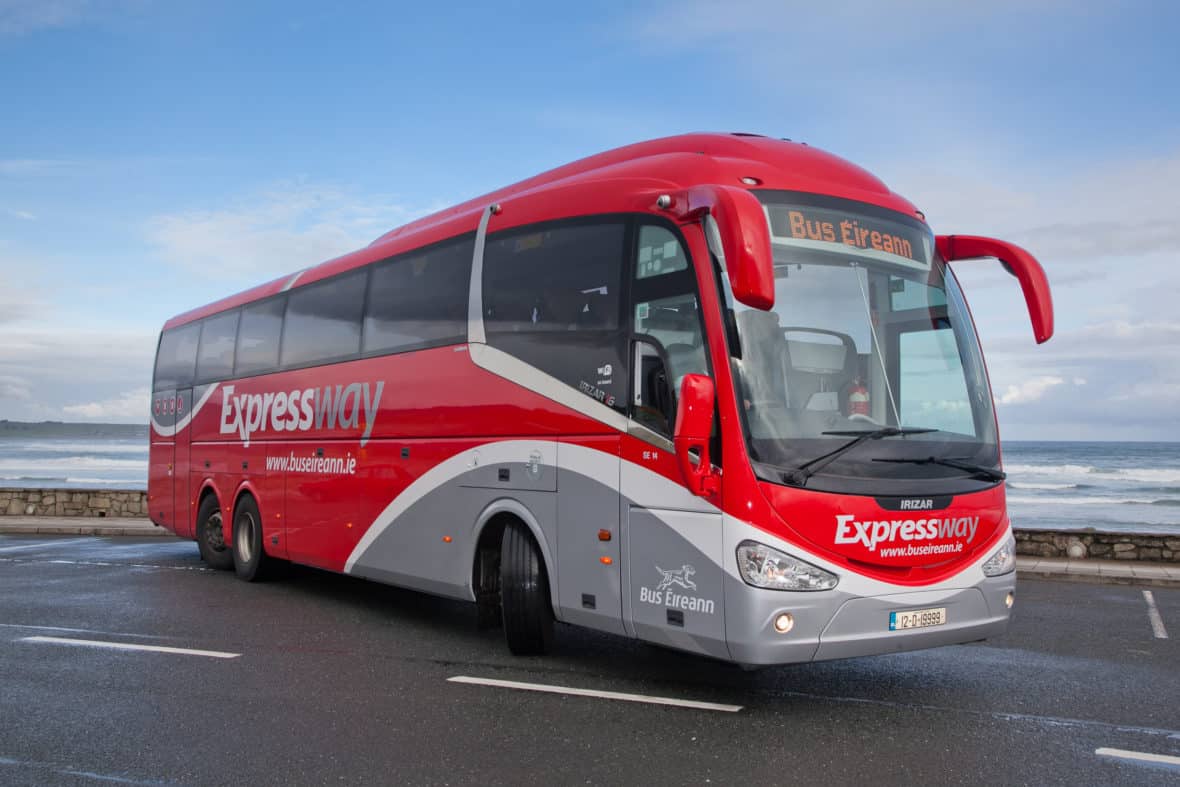
Bus Éireann has launched an ambitious 5-year sustainability strategy, saying it shows its commitment to becoming a global leader in sustainable public transport.

The new strategy – entitled ‘Driving Change’ – focuses on several key themes including climate action, environment, cities and communities. It also identifies of a number of key goals which include:
- 178m passenger journeys incorporating significantly increased services across towns, cities and school services.
- A doubling of female representation & an increase in diversity of the workforce of 20% by 2030.
- 51% reduction in CO2 emissions by 2030 (from 2019 baseline).
- 5 newly redeveloped stations – Limerick’s Colbert Station has been completed, with Galway’s Ceannt Station underway and three additional regional locations to be redeveloped.
The new strategy builds on the success of the previous and first sustainability document from Bus Éireann which was launched in 2021.

In that period, a number of significant milestones were achieved. Last year the company operated over 235 million kilometres. Total CO2 emissions also decreased by 6.8% within a period of strong growth for Bus Éireann.
In line with climate action goals, the company decreased non-hazardous waste volume by over 30% since 2019 and decreased water usage by 20%. Energy efficiency improved by nearly one quarter since 2009 (the base measurement year) and a major rollout of emission free Electric Vehicles and associated training saw the company continue its drive to deliver sustainable transport.
Rory Leahy, Chief Safety and Sustainability officer at Bus Éireann said: “Our core purpose in Bus Éireann is to sustainably connect people and communities, helping to make life better. We are committed to profound transformation over the course of the next decade. This will involve transitioning and modernising our depots and providing excellence in operations and customer experience.
“It is an exciting and challenging time ahead in Bus Éireann as we work towards a Net Zero future. We have a significant role to play in increasing the number of sustainable transport journeys in Ireland, as envisaged in the National Sustainable Mobility Policy and Climate Action Plan. This will be achieved with the ongoing close collaboration with our key stakeholders and partners, including the National Transport Authority, CIÉ and the Departments of Transport and Education.”
This year, funded by the National Transport Authority, Bus Éireann began the successful transition of their Limerick Depot and a rollout of the country’s first fully electric city service.
The ambitious project saw the introduction of an initial batch of 34 state-of-the-art double deck battery-electric buses and 30 charging stations providing more than 2.1 million emission-free kilometres across Limerick city services every year. This followed the rollout of a fully EV service in Athlone and helped deliver cleaner and quieter operations for passengers and the public.
Bus Éireann is now aiming to have 50% of its fleet zero emission by 2030, which if achieved will aid in its overall target of 51% reduction in CO2 emissions, assuming planned fleet transition.
In an effort to test new and emerging technologies which can help reduce emissions, Bus Éireann commenced a trial in early 2024 to test the use of a sustainable biofuel called Hydrotreated Vegetable Oil (HVO) as a potential replacement for diesel fuel. High quality HVO fuels can enable greenhouse gas emission reductions of 85%.
The trial is currently running on four vehicles in Mayo, three of which are part of the Department of Education’s School Transport System operated by Bus Éireann, and was made possible with funding from the CIÉ Sustainability Fund.
The company also continues trials with Hydrogen buses and to support pilot projects using the fuel as a sustainable mainstream alternative for transport in the heavy vehicle category.
Bus Éireann is committing to significantly increasing its services right across regional towns, cities and school services. The strategy sets out clear targets for 2030 to double passenger journeys to 178 million, while increasing School Transport services by 125% from the baseline year of 2019. The company is setting out its vision to help bring about modal shift and sustainably connect people and communities and create a cleaner future for all.
The plan outlines a number of initiatives which aim to increase access to services for all users. Included among them are the introduction and growth of the Travel Assistance programme. This scheme supports those with additional needs gain the skills to travel independently on public transport and to date has helped over 1,000 passengers. The programme began in Cork, is now also in place in Limerick and will begin operations in Galway and Waterford in the coming months.




